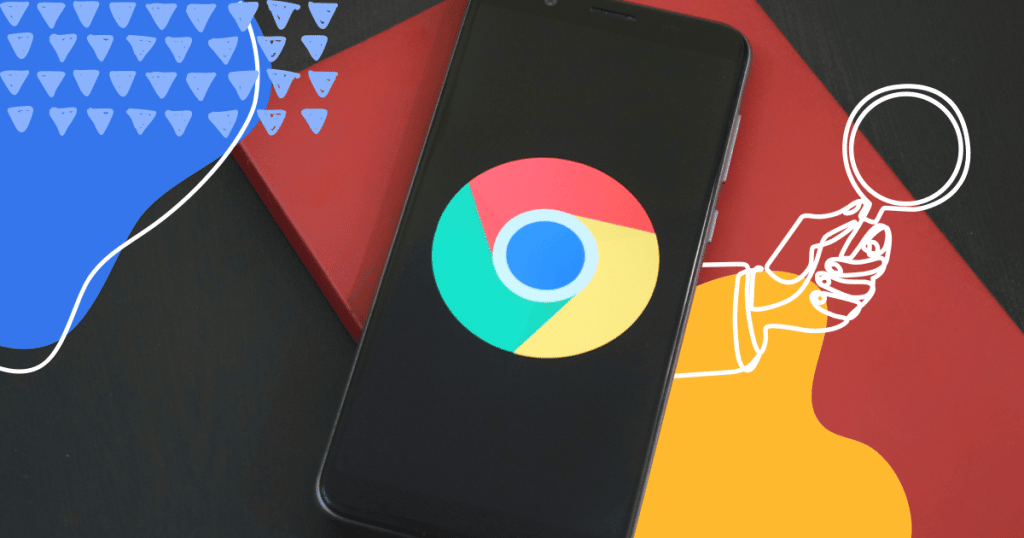If you put time, effort, and money into a digital marketing strategy, you need to know as much as you can about SEO, especially Google SEO.
SEO, or search engine optimization, drives the position of your websites, blogs, and pages on the internet in organic search engine results.
Using SEO the right way is crucial to achieving high visibility on Google. Why Google in particular? They are the clear market leader in search engine results, holding a whopping 83% share of the global search market.
Why is high visibility on Google important? Coming up toward the top of an internet search can mean more customers, more engagement, more click-throughs, and more revenue for your business.
What’s more? All of this is FREE. Yep, you don’t have to spend a ton of money to hone and develop SEO skills.
Read on to hear how you can use SEO to increase visitors, achieve great conversion rates, and become a top producer in your market.
- What Is SEO in Google?
- What Is the Google SEO Algorithm?
- Glossary Terms To Understand Google SEO
- How Does Google Crawl and Index Web Pages?
- Is SEO on Google Free?
- SEO vs. PPC
- How To Get a Google SEO Certification
- Take the Next Steps To Develop a Stronger SEO Strategy
What Is SEO in Google?
Search engine optimization is the basis for harnessing the power of the billions of internet searches that take place each day. Billions? Yes, over 7 billion searches a day on Google alone.
This means that there are 81,000 searches each second.
These staggering numbers make you realize just how important it is to get your business to the top of the search bar. You’ll want to optimize your website to make it easy to find via a web search.
SEO focuses on unpaid, organic traffic. This type of traffic can come from a variety of searches.
SEO takes into account how individual search engines, like Google, work by looking at what algorithms the search engines use, what things people search for, and what search engines are used the most.
Keywords become unbelievably important here because keywords help to get a website a higher ranking on the search engine results page (SERP).
For every online search, Google arranges the results by ranking the results in order of the best answers first. The further you are to the top of the search results, the better your chance is to convert clicks to purchases or customers.
Plus, using SEO is free. Because these are unpaid, organic searches, you’ll inevitably see a higher return on investment (ROI). SEO encompasses all aspects of digital marketing — from branding to coding and web development and more.
The more you know about and develop your digital marketing plan, the better your business will perform on Google.
What Is the Google SEO Algorithm?
The Google SEO algorithm is a complicated mathematical system that lets Google find, rank, and return the best search results for a specific search bar query.
In other words, every time a person performs a search on Google, you want your brand to come out on top by offering the ideal response to the search. In order to achieve this goal, you have to understand Google’s SEO algorithm.
Honestly, it isn’t just one algorithm that Google uses to rank sites in response to searches.
In reality, multiple algorithms take into account things like the quality, relevance, or usability of the page when ranking the results.
Google is constantly changing and updating its algorithm to respond to the changing web, as many as 500 to 600 times per year.
It is important to keep an eye out for updates to Google algorithm because they can harm or improve your:
- Search ranking
- Visibility on the web
- Unpaid traffic
- ROI
- Conversions
- Revenue
All of these categories should naturally be part of your overall digital marketing plan and reviewed on a rotating basis. If you don’t know how your search ranking relates to your ROI, you should.
Keeping an eye out for Google algorithm updates will further strengthen your digital marketing plan.
From 2011 to 2022, there were several major Google algorithm updates like Panda, Penguin, Hummingbird, Mobilegeddon, RankBrain, Mobile-First Index, BERT, Page Experience Update, May 2022 Core Algorithm Update, and September 2022 Core Algorithm Update.
Without going into highly technical details, each update was designed to improve the quality and relevance of search results.
While it is a well-kept Google secret, ranking factors rely on a variety of on-page elements like content, title, meta description, images, rich snippets, and more.
Off-page elements are important to ranking, too. Off-page elements include things like the number of backlinks, brand mentions, social signs, and direct searches.
Glossary Terms To Understand Google SEO
While the Google algorithm may seem like learning a new language, some simple terms come up quite often that will help you understand Google SEO. Of course, these are basic definitions.
Refer to our SEO guide for an even more in-depth look at some of these key terms.
- Analytics – The process of understanding and interpreting data to learn what works and doesn’t work when it comes to the content on a webpage. Information is used to take future action to improve results.
- Anchor text – These are the clickable words of a link. The anchor text provides context to the people visiting the website or the search engine to let them know what the information is about.
- Content – All of the words, images, sounds, and videos used by a website to convey information to the reader. Google utilizes content as a ranking factor. The more informative the content, the better the ranking.
- Conversion – The result of a person visiting a website and completing a specific action like making a purchase, completing a form, or viewing an embedded video
- Crawling – The process in which a search engine gathers information from the web and places it in an index
- Googlebot – Google’s web crawler
- Index – All the information a search engine knows about a particular website is saved in its index. The index entry for each page describes the content and location (URL) of that page.
- Keyword – All of the words and phrases on a website are picked to match what users are searching for in web queries. Keywords help Google determine what pages are the most relevant.
- Meta description – A tag that acts as a brief description of a webpage’s content. Meta descriptions can improve click-through rates.
- Pay-per-click (PPC) – A particular kind of advertising that charges advertisers every time a user clicks on an ad. It can be combined with SEO to increase conversions.
- Query – The words or phrases that a user puts in the search engine.
- SEO – Search engine optimization: the process of making your site better for search engines.
Thought already in becoming a partner in our journey?
You can instead tap into the power of our advanced SEO tools for guidance, produce the SEO assets your customer wants, and then deliver those assets to clients using the WriterAccess white label portal.
How Does Google Crawl and Index Web Pages?
Crawling, indexing and ranking. How does it all even work?
Search engines like Google crawl through the massive amount of content on the web using bots or spiders.
Google, in particular, has its own bot, known aptly as a Googlebot. The Googlebot follows for connections of links across the internet, like a spider traveling along a web identifying and locating new and updated pages.
Once pages are crawled, they are added to the index of the search engine. Google’s index is like a library of all the web’s content, organized according to the information collected by the Googlebot.
The information the bot collected might be as simple as the loading time of the site or might be as complex as keywords.
After the websites are crawled and indexed, they are ranked. Crawling and indexing are constants, happening all the time in the background.
Content on the web is constantly being organized and indexed. If not, new content wouldn’t even be included in search results.
This is why it is important to push out fresh content on a regular basis as part of your digital marketing plan.
Why? You want your website to be ranked near the top of the search so that you can gain more clicks. Shockingly, 32% of all clicks go to the number one result in Google.
Is SEO on Google Free?
In short, yes. It does not cost any money to appear in an organic search result on Google. However, it may be worthwhile to invest in an SEO expert or spend time really understanding how SEO works to improve your rankings.
By spending time developing content that is optimized for crawlers and Google algorithms, your business will rank higher, and you’ll see more organic traffic.
Developing and optimizing SEO is a moving target, though. Algorithms are constantly changing and new content needs to be added, linked, and referenced in order to stay on top of the search page.
SEO vs. PPC
Search engine optimization (SEO) and Google’s pay-per-click (PPC) are both digital marketing strategies. However, SEO is free, while PPC is not.
With PPCs, you pay a small fee when someone clicks on your ad to visit your site or call your business on the web. Ads can be changed depending on your business goals, whether that is promoting a sale or an upcoming event.
Small businesses thrive on the flexibility of Google Ads because they have flexibility at a reasonable price.
While PPC won’t improve organic search results, PPC can expose you to potential customers who may not otherwise find your business.
Improvements to SEO can help your website rank higher on Google Search by making it more visible. Sometimes, SEO takes a while to develop and perfect.
If short-term traffic is your goal, it might be worthwhile to focus on PPC for a short time. In our view, a combination of PPC and SEO is the best bet for business success.
How To Get a Google SEO Certification
Unfortunately, Google does not offer an “SEO certification.” They offer certification in Google Ads, Google Analytics, and other specialized classes. You can learn how to master Google Analytics with our step-by-step guide.
However, now Google is offering Google Career Certificates, and Search Engine Optimization Specialist is on the list of courses that are taught by Google employees who are experts on a variety of topics.
Obviously, Google is the market leader in the world of SEO. There are SEO certification courses offered by third-party vendors, but Google does offer a variety of classes like SEO fundamentals, Off-page SEO, On-page SEO, Free SEO Tools, Algorithm Updates, and more.
Google offers a digital marketing and eCommerce certificate that includes skills that allow people to qualify for jobs as SEO specialists. The program is endorsed by the American Association of Advertising Agencies and the American Advertising Federation.
Take the Next Steps To Develop a Stronger SEO Strategy
Well, now that you’ve learned everything you need to know about Google SEO, you should be ready to evaluate your digital marketing plan and make changes to your web pages to make sure you reach top search results on Google.
Our focus here has been to explain the basics of SEO, define key SEO terms, explain how Google uses SEO to crawl, index, and rank webpages in response to search engine queries, and explain how you can improve your SERP.
When you are ready to take the next step to learn more and develop an even more robust SEO strategy going forward, we strongly suggest that you take part in our webinar, Planning an SEO Strategy for 2023.
There, you’ll find even more in-depth information about how to utilize SEO to transform your online presence and take advantage of the ever-changing Digital Marketing landscape. See you there!








